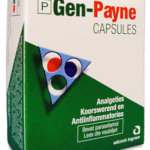Rhineton Tablets: Uses, Dosage, Side Effects, Warning

Rhineton is a South African brand of chlorpheniramine, a class of medications called antihistamines. It works by blocking the action of histamine, a substance in the body that causes allergic symptoms.
Rhineton relieves red, itchy, watery eyes; sneezing; itchy nose or throat; and runny nose caused by allergies, hay fever, and the common cold. It helps control the symptoms of cold or allergies but will not treat the cause of the symptoms or speed recovery.
How should Rhineton be used?
Rhineton comes as a tablet. Follow the directions on your prescription label carefully, and ask your doctor or pharmacist to explain any part you do not understand. Take Rhineton exactly as directed. Do not take more or less of it or take it more often than prescribed by your doctor.
Do not give Rhineton to children younger than 4 years of age. If you give these products to children 4-11 years of age, use caution and follow the package directions carefully. Before you give Rhineton to a child, check the package label to find out how much medication the child should receive. Give the dose that matches the child’s age on the chart. Ask the child’s doctor if you don’t know how much medication to give the child.
What special precautions should I follow while using Rhineton?
Before taking Rhineton
,
• tell your doctor and pharmacist if you are allergic to chlorpheniramine, any other medications, or any of the ingredients in Rhineton. Check the package label for a list of the ingredients.
• tell your doctor and pharmacist what prescription and nonprescription medications, vitamins, nutritional supplements, and herbal products you are taking or plan to take. Be sure to mention any of the following: other medications for colds, hay fever, or allergies; medications for anxiety, depression, or seizures; muscle relaxants; narcotic medications for pain; sedatives; sleeping pills; and tranquilizers.
• tell your doctor if you have or have ever had asthma, emphysema, chronic bronchitis, or other types of lung disease; glaucoma (a condition in which increased pressure in the eye can lead to gradual loss of vision); ulcers; diabetes; difficulty urinating (due to an enlarged prostate gland); heart disease; high blood pressure; seizures; or an overactive thyroid gland.
• tell your doctor if you are pregnant, plan to become pregnant, or are breast-feeding. If you become pregnant while taking Rhineton, call your doctor. Small (2 to 4 mg), occasional doses of chlorpheniramine are acceptable during breastfeeding. Larger doses or more prolonged use might cause effects in the infant or decrease the milk supply, particularly in combination with a sympathomimetic such as pseudoephedrine or before lactation is well established. Single bedtime doses after the last feeding of the day may be adequate for many women and will minimize any effects of the drug. The nonsedating antihistamines are preferred alternatives, though.
• if you are having surgery, including dental surgery, tell the doctor or dentist that you are taking Rhineton
.
• you should know that this medication may make you drowsy. Do not drive a car or operate machinery until you know how this medication affects you.
• ask your doctor about the safe use of alcohol while you are taking Rhineton. Alcohol can make the side effects of chorpheniramine worse.
• talk to your doctor about the risks and benefits of taking Rhineton if you are 65 years of age or older. Older adults should not usually take Rhineton because it is not as safe or effective as other medications that can be used to treat the same condition.
What are the side effects of Rhineton?
Rhineton may cause side effects. Tell your doctor if any of these symptoms are severe or do not go away:
• drowsiness
• dry mouth, nose, and throat
• nausea
• vomiting
• loss of appetite
• constipation
• headache
• increased chest congestion
Some side effects can be serious. If you experience any of the following symptoms, call your doctor immediately:
• vision problems
• difficulty urinating
If you experience a serious side effect, you or your doctor may send a report to the Food and Drug Administration’s (FDA) MedWatch Adverse Event Reporting program online (http://www.fda.gov/Safety/MedWatch) or by phone (1-800-332-1088).





